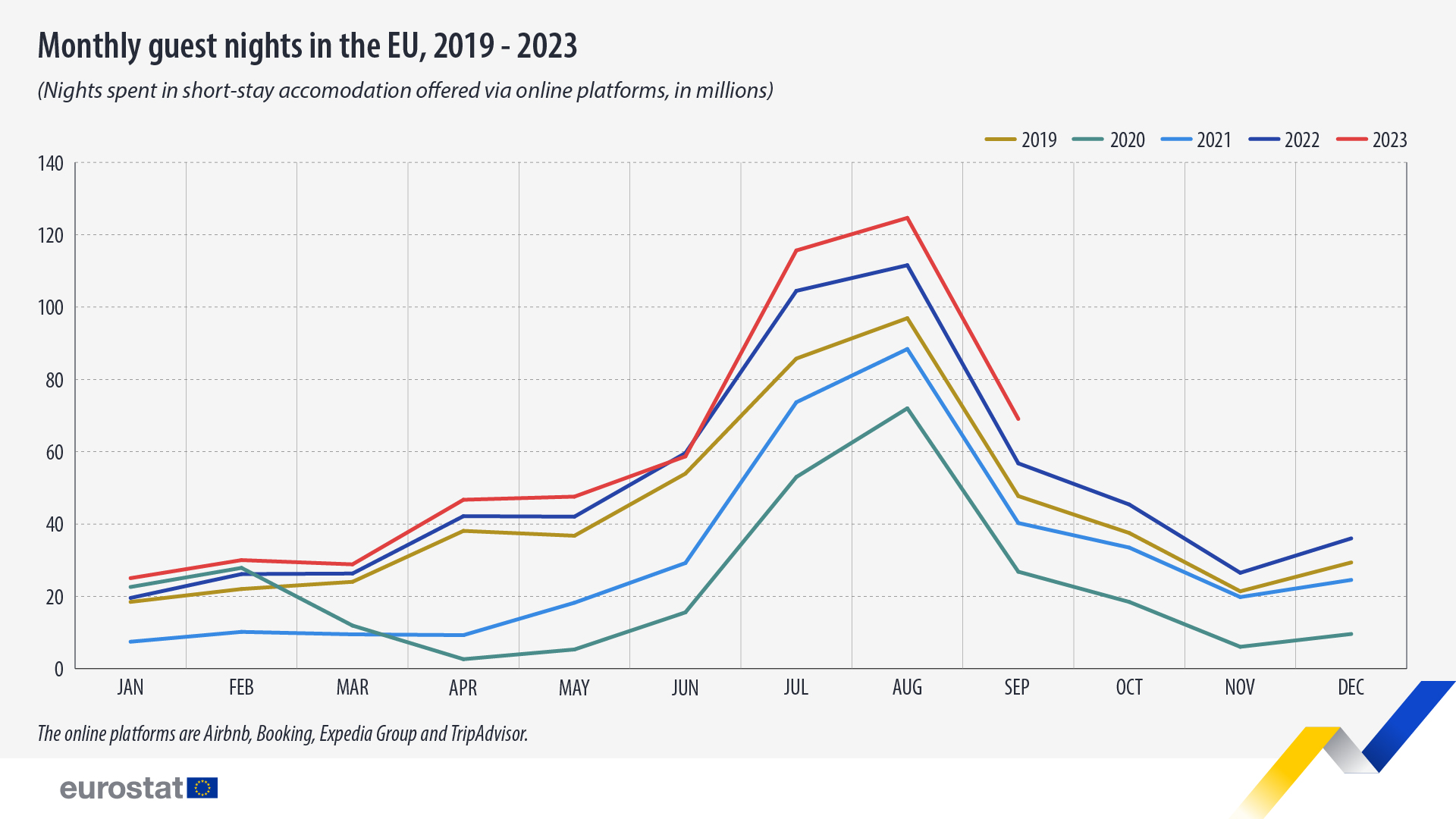Not just Airbnb. Here’s who ends up in the EU’s crackdown on short-term rentals

The green light from the Member States is missing, but the EU plan to combat unfair competition, the increase in house prices and the depopulation of the city center due to short-term rentals offered by online platforms such as Airbnb is ready. Here's what it predicts
Stricter rules for Airbnb and all online platforms that offer short-term rentals. The decision, not yet final, comes from Strasbourg, where yesterday the European Parliament formally approved the agreement reached with the Council on the new regulation.
Now all that is missing is the green light from the member states, which should arrive in the next few days. Those interested will then have two years to comply with the new rules.
WHY YOU NEED A CLOSE
With the explosion of platforms such as Airbnb, Booking, Expedia and TripAdvisor – which represent a quarter of the total short-term rental sector – the EU found itself unprepared and the real estate market and tourism sector were put in difficulty .
Clear rules, therefore, according to the EU, are necessary to combat unfair competition, the increase in house prices and the depopulation of the city center because residents are forced to move to more peripheral areas due to the inaccessibility of property prices. apartments which are then rented.
As the European Parliament rapporteur, Kim Van Sparrentak, declared, "the spike in illegal short-term holiday rentals" makes cities across Europe "more difficult to live in and less accessible".
THE BOOM IN SHORT RENTALS ON ONLINE PLATFORMS
In the third quarter of 2023, with 300 million nights spent in short-stay accommodation, booked via online platforms, a new increase was recorded compared to previous years and, in particular, 13.4% compared to 2022. This was reported by the 'Eurostat in its analysis last December.
As can be seen from the graph, tourism on the platforms had already recovered during 2022, with guest stays each month reaching or exceeding the pre-pandemic baseline. August 2022 was the first month with more than 100 million room nights booked. This development continued and intensified in the third quarter of 2023, with record room nights in each month.
In July, 115.7 million nights were spent in accommodations booked through online platforms, an increase of 10.7% compared to July 2022; in August this number rose to 124.7 million nights (+11.7% compared to August 2022) and in September to 69.1 million (+21.6% compared to September 2022).

Until now, however, there were 23 different legislation on registration and controls in the European Union. This is why, to manage this phenomenon, the EU Commission has proposed harmonizing the rules through the recording and sharing of data.
ANTI-TAX FRAUD IDENTIFICATION CODE
The heart of the squeeze is precisely the traceability of those who make apartments or beds available. To avoid tax fraud , track turnover, as well as offer more protection to the consumer, platforms and individuals offering short-term rentals will have to register with the national authorities and obtain a unique, personal identification code, which must be displayed on the website. online ad.
By identifying owners and tracking their activities, public administrations will be able to more easily monitor the tax burdens borne by lessors.
INFORMATION SHARING
The other point is data sharing. Airbnb&Co. they will have to report, through a digital desk, every month all the information on the rentals, from the location of the place to the number of nights and guests, up to the services offered.
This is a machine translation from Italian language of a post published on Start Magazine at the URL https://www.startmag.it/economia-on-demand/non-solo-airbnb-ecco-chi-finisce-nella-stretta-sugli-affitti-brevi-dellue/ on Fri, 01 Mar 2024 09:45:34 +0000.
